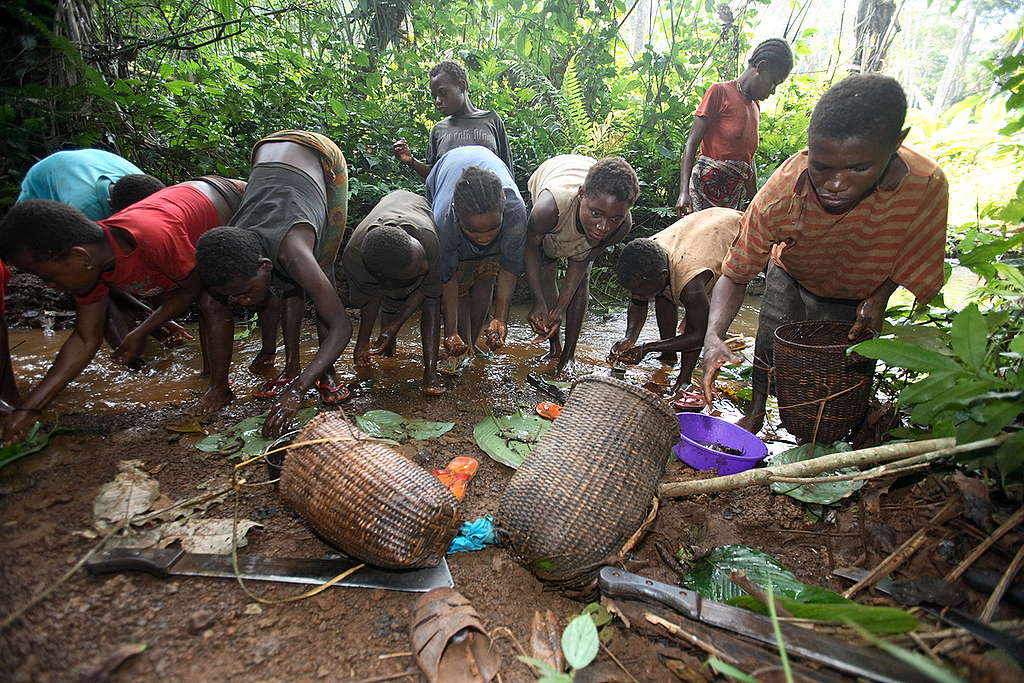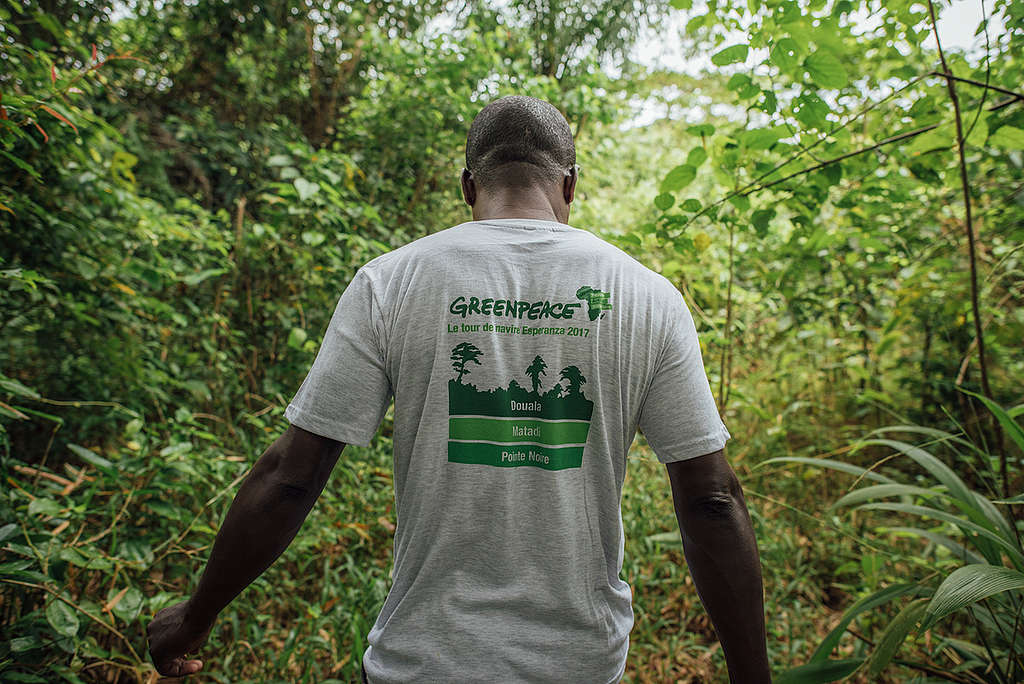
Hamburg/Yaoundé, 15 April 2021 – For the second time in 12 months, Deutsche Bank is about to violate its own Environmental and Social Policy Framework. By mid-2021, the bank is expected to transfer the second tranche of a 25m USD loan to Singapore-based rubber giant Halcyon Agri, knowingly overlooking its record of human rights violations, non-transparency, and some of the most devastating deforestation in Africa’s recent history.
In July 2020, Deutsche Bank announced “an innovative new loan” of USD 25m to Halcyon Agri, through its subsidiary Corrie MacColl, to finance investments for its plantations in Cameroon and Malaysia, promising “a new standard for the rubber industry.” The same month, the bank pledged not to “knowingly finance… activities within or in close proximity to a World Heritage Site,” yet satellite imagery shows that between 2011 and 2018 Halcyon’s subsidiary Sud-Cameroun Hévéa (Sudcam) cleared more than 10,000 hectares of rainforest – an area the size of Paris – less than one kilometer from the Dja Faunal Reserve, a UNESCO World Heritage site. The clear-cutting caused the displacement of Baka Indigenous People.
“Deutsche Bank must cancel its toxic loan immediately,” said Christoph Thies, Greenpeace Germany forests and climate campaigner. “If the bank’s ambitious target of spending 200 billion EUR on sustainability by 2025 means sponsoring human rights abuses and forest-trashing, Germany and the EU must respond with tighter regulation,” Thies added.
Last July, Greenpeace Africa called for the loan’s cancellation, based on findings by UNESCO, [1] Rainforest Foundation UK, [2] Earthsight, [3] Norway’s Government Pension Fund Global, [4] the Center for International Forestry Research, [5] and its own fieldwork. [6]
As Greenpeace reported in 2018 and 2019, the Sudcam plantation lies only seven kilometers from the Mvomeka’a mansion, security compound, and airstrip of Cameroonian President Paul Biya, who has held power since 1982. Greenpeace has obtained reliable evidence that Sudcam’s minority shareholder is the President’s son and potential successor, Franck Biya. Halcyon Agri has staunchly refused to name Sudcam’s 20% shareholder.
“Deutsche Bank’s champion company kicked Indigenous Baka People off their ancestral lands, without the slightest attempt at obtaining their free, prior and informed consent. Dressing up its loan as sustainable is a textbook case of greenwashing,” said Ranèce Jovial Ndjeudja, Greenpeace Africa campaign manager in Cameroon.
Greenpeace Africa and Greenpeace Germany call on Deutsche Bank to immediately terminate its loan to Halcyon Agri.
ENDS
Notes
[1) UNESCO, Rapport de la mission de conseil d’experts indépendants de l’UNESCO à la Réserve de faune du Dja (Cameroun), 18 February – 4 March 2019.
[2] Rainforest Foundation UK (RFUK), Palmed Off: an Investigation into three industrial Palm Oil and Rubber Projects in Cameroon and the Republic of Congo, May 2019.
[3] Earthsight, Cameroon women denounce “destruction” of forests and community by agribusiness giants, April 2020; The Coming Storm: How Secrecy and Collusion in Industrial Agriculture Spell Disaster for the Congo Basin’s Forest, March 2018.
[4] Norway Government Pension Fund Global (GPFG) Annual Report, February 27, 2019; Rainforest Foundation Norway, Press Release: Norway’s Government Pension Fund acts against deforestation: divests major agricultural companies, February 28, 2019.
[5] Center for International Forestry Research (CIFOR), Socioecological responsibility and Chinese overseas investments The case of rubber plantation expansion in Cameroon, 2015.
[6] Greenpeace Africa, We were told not to go to our Forest anymore: Sudcam’s assault on human rights, 2019; Halcyon Agri’s Ruinous Rubber (2018).
Contact for interviews and more information:
- Christoph Thies, Greenpeace Germany forests and climate campaigner, +49-0171-883 1107, [email protected]
Tal Harris, Greenpeace Africa International Communications Coordinator, +221-774643195, [email protected]
 Get Involved
Get Involved
